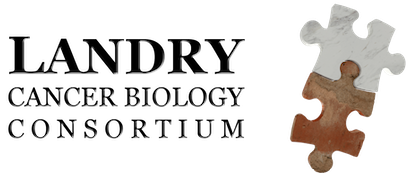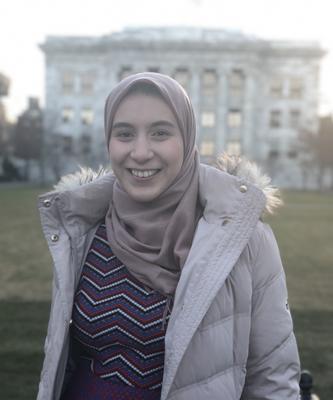
|
Nouran Abdelfattah Nouran graduated with high distinction from Worcester Polytechnic Institute, receiving a bachelors degree in Biochemistry and Biology. While in college, Nouran participated in the Harvard Stem Cell Research Internship (HSCI) program under the supervision of Dr. David Langenau, where she received a foundational research exposure to cancer biology and completed a senior thesis project on the role of TOX in T-cell leukemia. She also worked on developing the first immune-compromised zebrafish model for large-scale cell transplantation studies. After college, Nouran was awarded a Gates Cambridge Scholarship and obtained an MPhil in Translational Medicine and Therapeutics from the University of Cambridge, where she characterized the role of calreticulin in Myeloproliferative Neoplasms. Now at Harvard, she joined the lab of Dr. Stephen Elledge with the goal of developing better tools to redirect the power of the immune system to drive anti-tumor immunity. In particular, she is interested in engineering T cells for adoptive T cell therapies. Outside of the lab, Nouran enjoys mentoring others and teaching as well as being part of the Leder Human Biology and Translational Medicine Program.
|
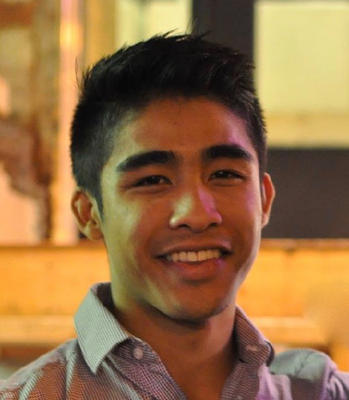
|
Jeremy Gungabeesoon Jeremy Gungabeesoon studied biochemistry and immunology at McGill University, where he developed an interest in cancer immunology. In 2017, he graduated with a Bachelor of Science from McGill’s Interdepartmental Honours program in Immunology, and began in the Biological and Biomedical Sciences PhD program at Harvard. Jeremy joined Dr. Mikael Pittet’s lab in the Center for Systems Biology at Massachusetts General Hospital to study the under-appreciated role of myeloid immune cells in cancer. He is specifically focused on characterizing the diverse populations of a subset of these myeloid cells (called neutrophil cells) in lung cancer and determining how these cells can be harnessed for cancer therapy.
|
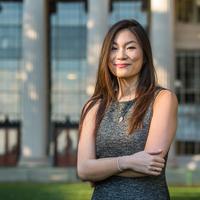
|
Diana Lu Diana grew up in Newton, MA and graduated from Tufts University, summa cum laude, in 2011 with a B.S. degree in Biology. She then worked as a Research Associate at the Broad Institute in the lab of Dr. Aviv Regev. There, she helped develop single-cell expression profiling pipelines and apply them at scale to reveal functional heterogeneity in normal and cancer cells. In 2015, she entered the MD-PhD program at Harvard and completed her pre-clinical studies in the Harvard-MIT Health Sciences & Technology program. For her PhD thesis, Diana studies Ewing sarcoma in the Stegmaier Lab at Dana Farber Cancer Institute. She is interested in characterizing the transcriptional networks that drive this disease to highlight novel therapeutic strategies. Ultimately, Diana hopes to work as a pediatric oncologist and lead research efforts that advance patient care.
|
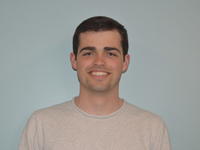
|
Adam Maynard Adam Maynard graduated summa cum laude from Rensselaer Polytechnic Institute in 2017 with a Bachelor of Science in Biochemistry and Biophysics. During his undergraduate career, he discovered his passion for cancer research as a summer research fellow at Fox Chase Cancer Center and The University of Michigan’s Comprehensive Cancer Center. Now a PhD Candidate in the Biological and Biomedical Sciences program, Adam joined the Kanarek lab to study folate metabolism and homeostasis in normal physiology and cancer.
|
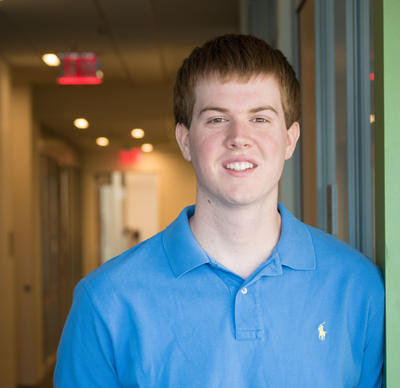
|
Matthew McHenry Matthew graduated with highest distinction from UNC-Chapel Hill with a Bachelor of Science in Chemistry, having conducted undergraduate research in protein engineering and biocatalysis under the mentorship of Dr. Eric Brustad. Now in Dr. Loren Walensky’s lab at the Dana-Farber Cancer Institute, Matthew is focused on understanding how modifications to proteins that regulate cell death can promote cancer cell proliferation. Outside of lab, Matthew also serves as a mentor for Harvard’s Health Professions Recruitment & Exposure Program, a summer enrichment program for Boston-area high school students.
|
